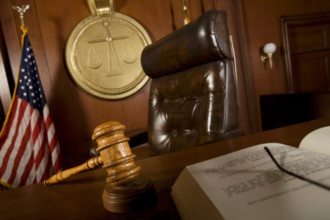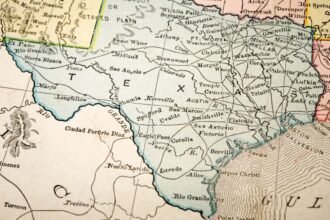Although Donald Trump and Joe Biden are political opposites in many respects, their reactions to legal issues involving their families and themselves highlight remarkable commonalities. In the face of well-publicized court cases, both men have defended themselves and their close colleagues using the language of selective prosecution and politicized justice. Recent events concerning Trump’s hush-money case and Hunter Biden’s legal problems clearly show these common characteristics, highlighting the general worries over justice and the rule of law.
- What Was Joe Biden Pardon His Son Criticising of the Prosecution?
- How Is Trump Reacting to the Legal Action Against Him?
- Identify the main parallels between the legal cases of Trump and Hunter Biden.
- How Are Trump's Lawyers Challosing His Conviction Using Hunter Biden's Pardon?
- How Different Are Trump's and Hunter Biden's Legal Problems?
- Does a double standard exist within the justice system?
- How do these Legal Cases affect the Growing Distrust in Political Institutions?
- What political ramifications follow from these continuous legal conflicts?
What Was Joe Biden Pardon His Son Criticising of the Prosecution?
President Joe Biden offered a “full and unconditional” pardon for his son, Hunter Biden, on Sunday night, expressing anger at the politically motivated prosecution he felt was targeting his family. Biden remarked, criticizing what he regarded as an unfair court system, “No reasonable person who looks at the facts of Hunter’s cases can reach any other conclusion than Hunter was singled out only because he is my son—and that is wrong.”
Biden’s remarks reflected rhetoric sometimes used by his political opponent, former President Donald Trump, especially in response to the court cases involving his claimed campaign finance misbehaviour. Biden’s criticism of what he saw as a biased justice system reflects the kind of language Trump has long used to talk about his legal struggles, including the indictment and later conviction in the New York City hush-money case.
How Is Trump Reacting to the Legal Action Against Him?
One of the most well-publicized legal challenges Trump encounters is still the New York case concerning hush-money payments to adult film star Stormy Daniels. The case resulted in Trump’s conviction for several felonies connected to fabricating corporate records to conceal campaign money transgressions. Like Biden, Trump, however, insists the claims were driven politically. Strong Trump friend, Republican Senator Lindsey Graham, labelled the case an “outrage,” claiming that it was blatantly selective prosecution used for political expediency.
“What’s going on in New York is an outrage, Graham remarked. “I believe it to be selective prosecution driven by political agenda.” This is consistent with the opinions expressed by Trump’s legal team, which has maintained time and again that all of his legal problems are part of a concerted attempt to discredit his candidature and damage his character.
Identify the main parallels between the legal cases of Trump and Hunter Biden.
Though Hunter Biden’s legal problems and Trump’s case differ, some interesting parallels exist. Many years after the events in issue, both cases were scheduled for trial in 2024. While Hunter Biden’s legal concerns—related to a firearms application in 2018 and tax evasion between 2016 and 2019—stemmed from similar time frames, Trump’s hush-money payments occurred in 2016.
Fascinatingly, both cases turned around unexpectedly. For Trump, there was a time when the inquiry into his New York case might be shelved once Manhattan District Attorney Alvin Bragg was elected. Hunter Biden’s case also witnessed a significant change when a plea agreement meant to prevent jail time fell apart at the last minute because of issues expressed by the presiding judge. Both instances show an odd use of current rules, including the federal campaign finance offences in Trump’s case and the uncommon prosecution of Biden’s gun application concerns devoid of any relation to more severe crimes.
How Are Trump's Lawyers Challosing His Conviction Using Hunter Biden's Pardon?
In their defence, Trump’s legal team has seized upon the parallels between the two cases. In a recent brief, they used President Biden’s pardon of Hunter Biden as justification for discounting Trump’s conviction in the New York case. The file quoted Biden, arguing that Biden’s comment on political meddling in judicial affairs could be used to discredit the accusations against Trump.
“President Biden said that ‘raw politics has infected this process and it led to a miscarriage of justice,’,” Trump’s lawyers noted. “These remarks amounted to an amazing denunciation of President Biden’s own [Department of Justice].”
Trump’s In this legal argument, Trump’s lawyers contend that the Hunter Biden case and the surrounding rhetoric should guide Trump’s own legal issues’ outcome. “This case should never have been brought,” they said.
How Different Are Trump's and Hunter Biden's Legal Problems?
The two instances differ fundamentally, even if they have certain similarities. Hunter Biden has not held public office, unlike Donald Trump, the US President during his claimed transgressions. Moreover, the New York hush-money lawsuit marks only one of the multiple legal challenges Trump faces; some centre more recent, more severe claimed offences. Trump, on the other hand, has aggregated all of these incidents under the pretext of a larger political conspiracy meant to thwart his presidential ambitions.
By comparison, Hunter Biden’s legal problems are significantly less politically charged as viewed by the public. Still, the critique of the legal system is the same: Biden and his supporters contend that the system was unfairly targeted against the president’s son. Conversely, Republicans saw the closure of Hunter’s tax and gun charges as evidence of justice done.
Does a double standard exist within the justice system?
The continuous legal conflicts involving Trump and Hunter Biden have spurred much discussion on whether political factors influence prosecutor judgements more than they should or if the judicial system is objective. Former Assistant US Attorney Kevin McMunigal, a Case Western Reserve University law professor, contends that assertions of political bias in the court system are sometimes overdone.
“Congress and state legislatures love to pass criminal statutes; they rarely undo them because of the politics involved,” McMunigal said. Everybody wants to be harsh on crime. You end up with crime-filled statutory books, many of which must be addressed. Especially in well-publicized situations like those involving Trump and Biden, this dynamic might cause uncertainty over why some crimes are investigated while others are left unquestioned.
Still, political parties have disagreed over this view of a double standard, particularly about the privileged and wealthy. As McMunigal points out, public ignorance of why some cases are given priority while others are disregarded could support charges of a two-tiered legal system.
How do these Legal Cases affect the Growing Distrust in Political Institutions?
Professor of political science John Geer of Vanderbilt University thinks the disputes about the legal decisions involving Trump and Hunter Biden point to a more general crisis of faith in American institutions. Geer notes that assertions of selective prosecution are little bits of a much bigger problem: public mistrust of political establishments, including Congress, the presidency, and the Supreme Court.
Justice has never been blind, Geer noted. “There have been times when it has been more even-handed than others, but overall it has not,”
Trump has used this mounting disenchantment with the system to his advantage by presenting himself as an outsider battling a dishonest “swamp.” By doing this, he has connected with many followers who feel the conventional political system cannot bring about the desired reforms. Biden also uses some of the same rhetoric, especially defending his son from legal accusations.
What political ramifications follow from these continuous legal conflicts?
How Trump and Biden present their legal challenges exposes a general story about American politics. While Biden’s recent use of such language may help him mobilize his base as well, Trump’s repeated assertions of political persecution have energized his supporters. Both times, there is apparent general mistrust of government, and both leaders seem driven to use this attitude for political advantage.
Ultimately, whether or not the legal actions against Trump and Hunter Biden were politically driven, their public justifications have drawn on a broader crisis of confidence in American institutions—one that both men seem resolved uniquely.
Actor Johnny Wactor was Killed in a Los Angeles Car Theft Incident








